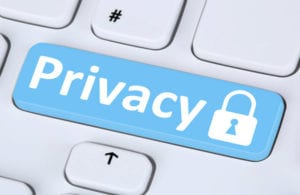 Doxxing or Doxing is a threat to your online privacy. Beginning in the 1990s. Simply put, it is the process of researching details of people’s lives. It is done to cause several issues from exposing the person to legal prosecution, embarrass the victim, draw criticism towards that person, or cause them physical harm. Sometimes, it can get so intense that people’s lives are ruined all by doxing. Additionally, it can lead to attacks of public shaming and cause some to go into hiding.
Doxxing or Doxing is a threat to your online privacy. Beginning in the 1990s. Simply put, it is the process of researching details of people’s lives. It is done to cause several issues from exposing the person to legal prosecution, embarrass the victim, draw criticism towards that person, or cause them physical harm. Sometimes, it can get so intense that people’s lives are ruined all by doxing. Additionally, it can lead to attacks of public shaming and cause some to go into hiding.
Doxxing Origins and Purpose
The name comes from the word, document. It became docs and then Dox. By doxing someone, you are documenting their information. Those include the victim’s SSN, address, email account, address, details of partners/children, place of work, and more. These days, it is primarily used as a weapon.
Though it can be used for good or evil, more often then not, it is to attack someone. An example of this activity is the “Anonymous” movement and their actions. The 4Chan message board that they use has millions of users. When they launch a hate campaign against a celebrity or company leader, it can be catastrophic.
The Issues With this Practice
Unfortunately, Doxxing can cause problems. That is true, especially if the information is wrong. There are several incidents that have led beyond the normal realms. It definitely takes cyber bullying to the next level. Since Doxxing can reveal real addresses, it can definitely lead to deadly events.
Swatting
No, we are not talking about swatting a fly. Swatting is a practice that is similar to a modern-day version of a prank call. That said, it is a lot more deadly. Because of Doxing, a gaming dispute in 2017 resulted in death when a competitor called the police in the victim’s city. The “Swatter” told the police that he had shot someone and had 2 hostages (he was posing as the victim). When the victim walked out to find out what was going on, he was shot dead.
Public Sources of Information
There are several public sources where the information is available. Those include data brokers, WHOIS, IP addresses, and more. Data brokers will sell your information to 3rd party companies, WHOIS is a website lookup that can reveal personal data if you run a website, and even your IP address can reveal details of your life. Most of these you can’t control.
Ways You Can Limit Damage
On social media, you can definitely damage if you follow some basic common sense rules. Many people still love Facebook, but you need to be cautious.
- Be wary about adding work colleagues to your friends list, they could become rivals.
- If you do not know someone, do not accept a friend request from them.
- Under “Settings” in FB, go to Privacy > Edit > Who can see your future posts > Friends > Close. That will make it harder for those that are not your friend to get your personal information.
- If you are using a website with a Gmail account, Facebook, or Google Plus account login option, do not take those options. That will expose your private data from the social media profile you choose.
- Install antimalware on your devices.
- Remove personal data from your apps.
- Create a “burner” identity.
- Vary usernames and passwords.
There you have the best ways to limit damage to your personal information. Of course, there are other ways, but all of the suggestions above will help. Being vigilant and limiting outside access to your personal information could stop you from such a doxing attack.
